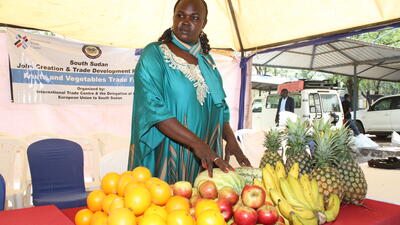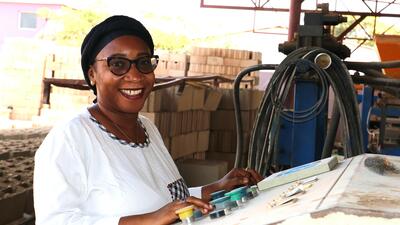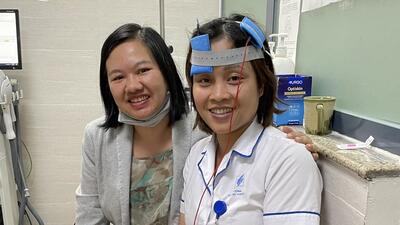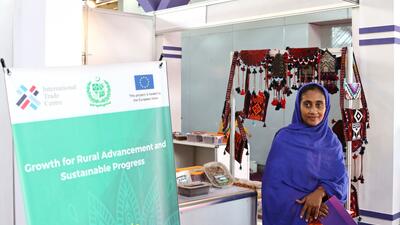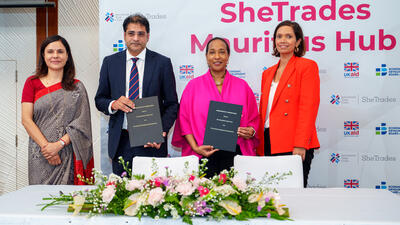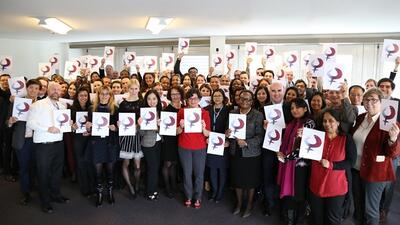
Building a Better World for Women By Trading Across Borders
Today is International Women’s Day. A celebration, more than a century old, of the social, economic, cultural and political achievements of one half of the human race. A chance for the entire world to reflect how we – as individuals, governments, companies and organizations – can do more to achieve gender equality. A moment to challenge our assumptions and shake the foundations of structures that hold women back at home, in the workplace and on the global stage.
This year, sadly, the world may find little to cheer about. We are in the toughest period that the world has faced since the creation of the UN system more than three-quarters of a century ago. The quadruple shock of COVID, conflict, climate change and cost-of-living increases has erased decades of hard-found development gains. From disproportionate pandemic-era job losses to the exodus of families from the war in Ukraine, women have borne the brunt of these “four C’s”.
This is why, on this International Women’s Day, the world needs to come together to put women’s economic empowerment back on track. As the head of the International Trade Centre, the joint agency of the United Nations and the World Trade Organization (WTO) committed to helping small businesses, this is why I have come to Mauritius: to launch a hub supporting women entrepreneurs to “go global”.
Women in trade: a case for action
Despite progress, there is still much that needs to be done to achieve gender equality. According to a McKinsey study, advancing gender equality can add US$12 trillion to global GDP. Yet less than one-fifth of all micro, small and medium-sized enterprises, or MSMEs, involved in global trade are owned by women.
We also know that women entrepreneurs face additional barriers to start businesses and participate in the global economy. These barriers include limited access to financing, training opportunities and information about new markets. Women-led businesses also tend to be smaller in size and more vulnerable to external shocks.
The case for action in Africa is particularly compelling. Women are the engine of trade in Africa and small businesses provide an estimated 80% of jobs across the continent. Yet small businesses in Africa face unique challenges: a recent African Union study found that five out of every seven African small businesses fail within their first year; only one-third to one-fifth have adequate access to bank loans and lines of credit.
If we are serious about transforming lives and economies, this must change. This is particularly timely given the game-changer that is the African Continental Free Trade Area, or AfCFTA. The World Bank estimates that, if fully implemented, the AfCFTA could boost Africa’s income by US$450 billion by 2035 and increase intra-Africa exports by over 80%. Imagine the impact on the lives of women entrepreneurs on the continent!
Mauritius, ITC and the UK Government: partners for change
As in so many areas of trade and development, Mauritius has been a trailblazer on the international stage. As someone who grew up in Jamaica – a fellow Small Island Developing State – I salute Mauritius’ historic achievement in transforming centuries-old trading patterns and dependence on trade preferences to create a vibrant, diversified trading economy.
This commitment to economic growth and diversification comes with an impressive track record on supporting women’s economic empowerment: From establishing the National Women Entrepreneur Council to adopting gender-sensitive budgeting; from scoring 100 out of 100 on the World Bank’s equal pay indicator to setting a target of at least 30% of women in decision-making positions in the public and private sectors.
This is why ITC has joined forces with the UK Government and the Economic Development Board (EDB) to launch the SheTrades Hub in Mauritius. This Hub will be joining a network of 11 existing SheTrades Hubs across Africa, Asia, the Caribbean and Latin America – and in the coming weeks and months, ITC will welcome Bangladesh and Mongolia to the family.
SheTrades is one of ITC’s flagship global initiatives that works not only with women, but also policymakers, business support organizations and the private sector to create the right capacities and conditions for women to participate in and benefit equally from trade.
The SheTrades Mauritius Hub will improve the business support ecosystem, supporting the growth of women's economic empowerment initiatives. It will improve the capacity of women-led businesses to access markets. It will unleash the potential of young women graduates by teaching them entrepreneurial skills. It will be a beacon for other SheTrades Hubs to look up to.
A call to action
This International Women’s Day, let’s put women’s economic empowerment back on track, through international trade. Let me suggest four actions all governments can take right now.
First, let’s recognize that while trade has lifted a billion people out of poverty, trade outcomes are not gender neutral. That means continuing to shape policies at the national, regional and international level that give women not only equal opportunities, but also tailored training and support to make the best of those opportunities.
Second, let’s continue to advocate for women-led exporters on the international stage. This means continuing to raise women’s voices at the WTO, United Nations and regional platforms like the AfCFTA.
Third, let’s put an end to glaring data gaps that undercount women and their achievements. Gender-disaggregated data, like those offered by our online policy tool SheTrades Outlook, isn’t just a nice-to-have; it is a fundamental tool of social and economic policymaking.
Fourth and finally, let’s keep pushing forward, recognizing that gender equality is a right in and of itself. It is a requisite for sustainable development. It’s not just the right thing to do, it’s the smart thing to do. Promoting women’s economic empowerment makes companies more competitive, drives economic transformation and reduces poverty.





